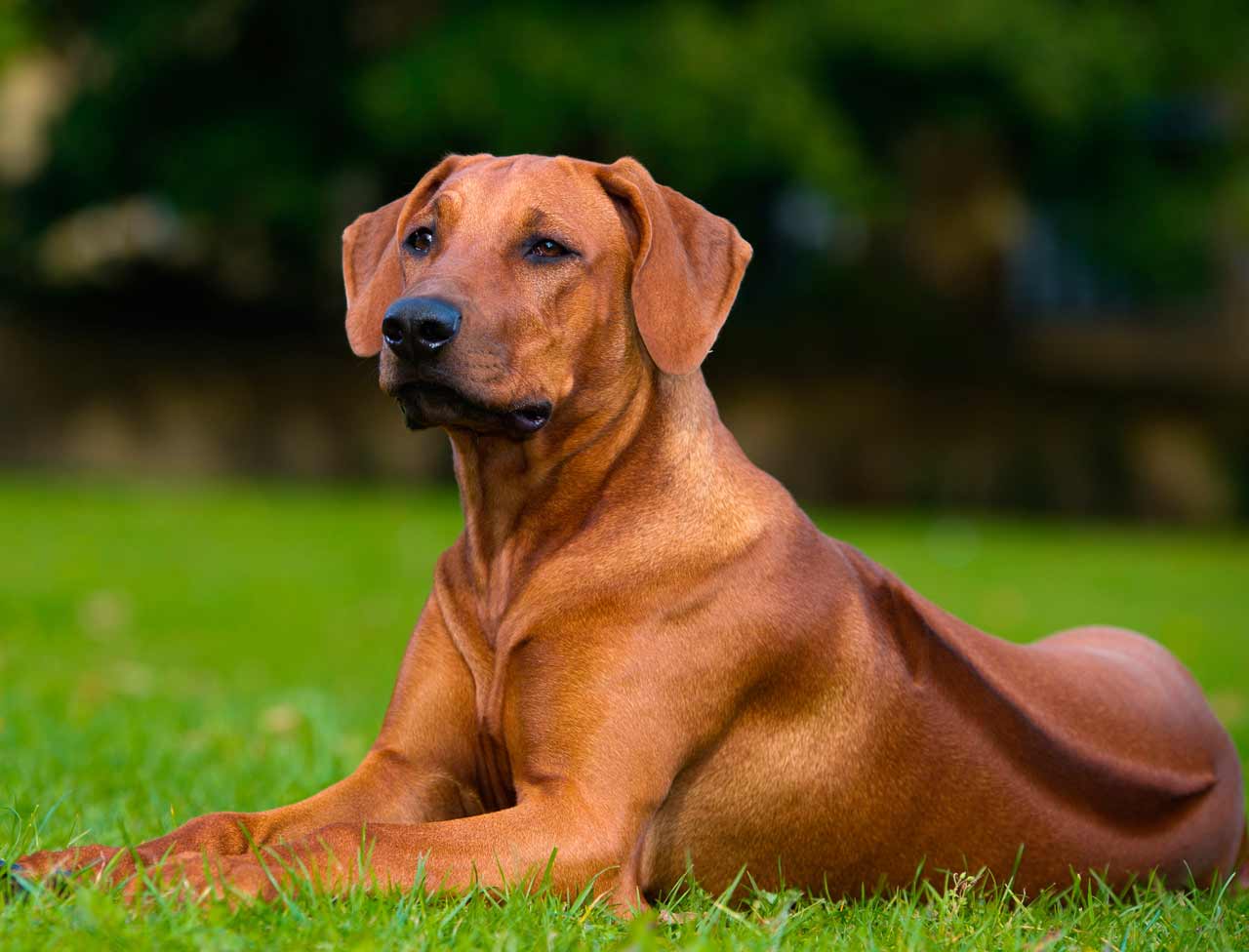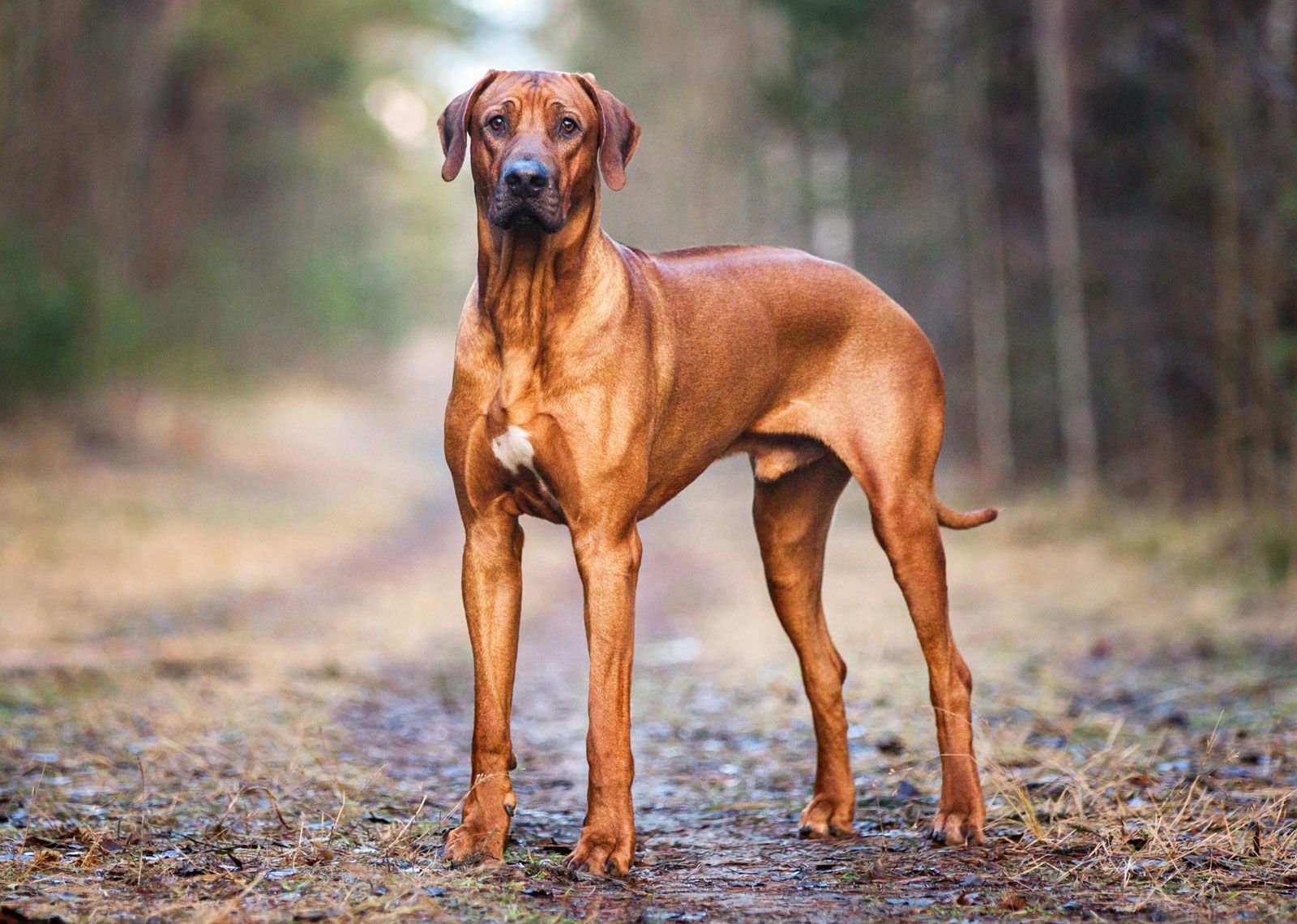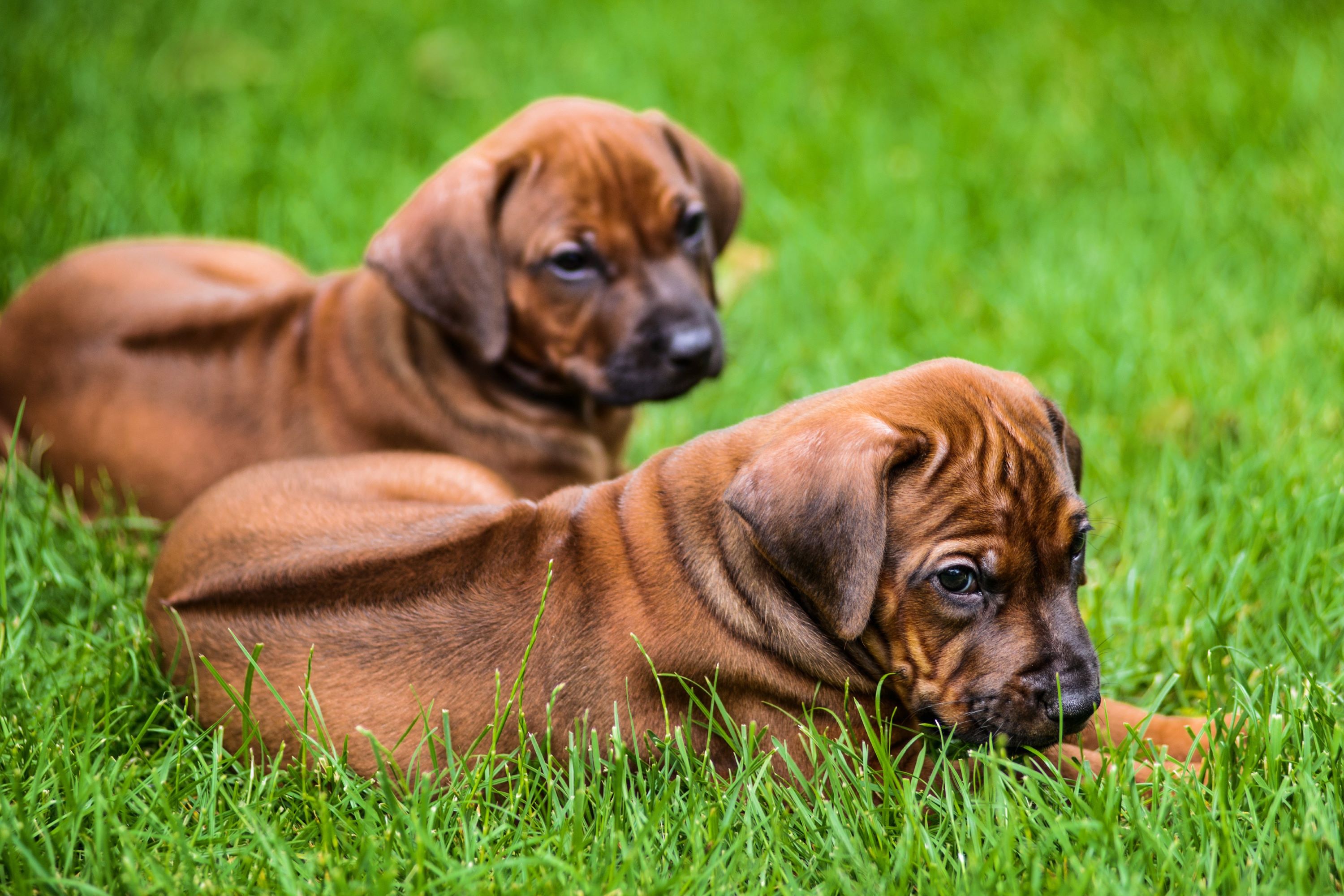
The Rhodesian Ridgeback has an incredible history rooted in southern Africa. Originally bred in the 16th and 17th centuries, local Khoikhoi dogs with distinctive ridges were crossed with European breeds like Greyhounds, Mastiffs, and Bloodhounds brought by Dutch, German, and Portuguese settlers. The goal was to create a dog that could withstand harsh African conditions, act as a loyal family guardian, and, famously, help hunt lions.
Early farmers in what is now Zimbabwe needed courageous dogs that could track game, hold it at bay, and protect property and family. The "ridge" along their back—a strip of hair growing in the opposite direction—is a hallmark trait, passed down from their African ancestors.
The Rhodesian Ridgeback was officially recognized by the American Kennel Club (AKC) in 1955. Today, it's prized not just for its impressive hunting abilities but also for its loyalty and elegance as a companion.
The Rhodesian Ridgeback has a loyal following worldwide, especially among those who appreciate large, active, and intelligent dogs. Its dignified demeanor, athletic build, and protective instincts make it a favorite in many countries for both companionship and sport.
While not as common as some other large breeds, the Ridgeback's reputation for loyalty, bravery, and family devotion ensures steady popularity.
Rhodesian Ridgebacks are powerfully built yet elegant.
• Height: 24–27 inches (61–69 cm)
• Weight: 70–85 pounds (32–39 kg)
• Build: Athletic, muscular, and symmetrical
• Coat: Short, dense, and sleek
• Color: Light wheaten to red wheaten; small white patches on the chest and toes are allowed
• Distinctive Feature: A clear "ridge" along the back formed by hair growing in the opposite direction
• Head: Strong with a flat skull and a pronounced stop
• Eyes: Round, reflecting the coat color, with an intelligent expression
• Ears: Set high, medium-sized, and carried close to the head
The Rhodesian Ridgeback is confident, dignified, and independent.
• Loyal: Deeply devoted to family members
• Protective: Naturally reserved with strangers
• Strong-willed: Independent thinker; training must be firm yet kind
• Energetic: Needs ample exercise and mental stimulation
• Affectionate: Loving with their inner circle but not overly needy
• Quiet: Not prone to excessive barking unless necessary
Without enough exercise and guidance, a Ridgeback can become bored, leading to destructive behavior.

A Rhodesian Ridgeback offers companionship, athleticism, and a natural sense of protection. They are low-maintenance compared to many other breeds but require an experienced hand.
Ideal for:
• Active individuals or families
• Those looking for a loyal, low-key guardian
• Households with fenced yards and access to open spaces
• People committed to structured training and socialization
Not ideal for:
• First-time dog owners unfamiliar with independent breeds
• Apartment living unless exercise needs are exceptionally met
• Homes with very small pets (prey drive can be strong)
• Exercise: Needs at least 1–2 hours daily of vigorous activity
• Training: Early socialization and obedience training are essential
• Grooming: Minimal—an occasional brushing suffices
• Living Environment: Ideally suburban or rural homes with secure fencing
• Feeding: Balanced diet tailored for large, active breeds
Rhodesian Ridgebacks are generally healthy, living about 10–12 years. Health concerns include:
• Hip dysplasia
• Elbow dysplasia
• Dermoid sinus (a congenital skin condition associated with the ridge)
• Bloat (Gastric Dilatation-Volvulus)
Regular vet check-ups and preventive care are crucial, especially monitoring joints and digestive health.

• Vizsla: Both are athletic and affectionate, but Vizslas are more needy and less independent.
• Weimaraner: Weimaraners are more energetic and people-focused; Ridgebacks are more independent.
• Doberman Pinscher: Both are protective, but Dobermans are more intense in guarding behavior.
Choose a Rhodesian Ridgeback if you value independence, courage, and loyalty in a dog—and if you are committed to providing structured training and ample exercise.
Avoid if you prefer a very eager-to-please breed or cannot provide consistent leadership.
Work with breeders who prioritize health testing (especially for dermoid sinus and hips) and who socialize puppies properly. Breed-specific rescues also offer wonderful opportunities to adopt older Ridgebacks needing loving homes.
United Pet Club offers help with adoption, health tracking, microchip registry, and international travel documentation for your Rhodesian Ridgeback.